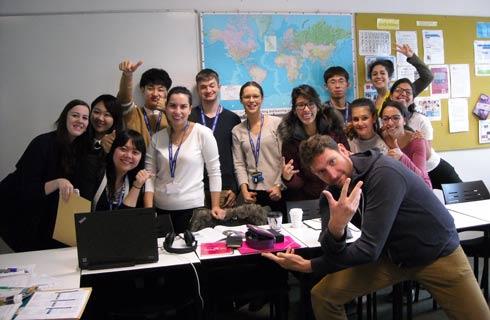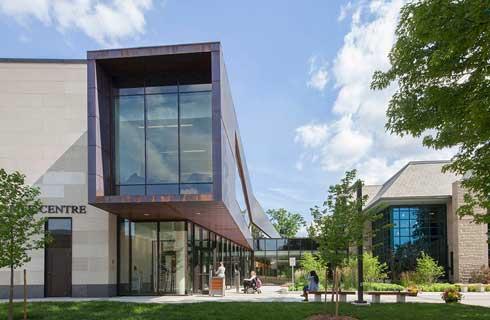- IDP China>
- 课程库>
- 商科与管理>
- 数学与统计学>
- 应用数学>
- Doctor of Philosophy in Applied Mathematics - Control and Dynamical Systems
应用数学哲学博士-控制与动力学系统
Doctor of Philosophy in Applied Mathematics - Control and Dynamical Systems

学历文凭
Ph.D.

专业院系
Department of Applied Mathematics

开学时间

课程时长

课程学费

国际学生入学条件
It is absolutely essential that the application for admission into the program contain evidence of potential for performing original research. This should be provided by successful completion of a Master's thesis in a mathematics-related discipline.
In some circumstances a student enrolled in the MMath program may transfer to the PhD program without completing their MMath program.
Supervisors
Review the finding a supervisor resources
Application materials
Resume
Transcript(s)
Three references are required, normally from academic sources
Proof of English language proficiency, if applicable
TOEFL 90 (writing 25, speaking 25), IELTS 7.0 (writing 6.5, speaking 6.5)
IDP—雅思考试联合主办方

雅思考试总分
7.0
了解更多
雅思考试指南
- 雅思总分:7
- 托福网考总分:90
- 托福笔试总分:160
- 其他语言考试:PTE (Academic) - 63 (writing 65, speaking 65)
CRICOS代码:
申请截止日期: 请与IDP顾问联系以获取详细信息。
课程简介
Modern society has been shaped by a long tradition of mutual inspiration and enrichment between Mathematics and the Sciences. In this tradition, the Department of Applied Mathematics offers its graduate students opportunities for study in the areas of Control Theory and Dynamical Systems, Fluid Mechanics, Mathematical Medicine and Biology, Mathematical Physics, and Scientific Computation. Our students' research projects involve cutting-edge applications of mathematical theory in a broad range of fundamental and applied sciences. These applications include, for instance, cancer therapy optimization, control of shape memory alloys, fractal image processing, quantum computing, and the study of climate variability, inflationary cosmology, and nanotechnology. The Department of Applied Mathematics is one of five units that comprise the Faculty of Mathematics at the University of Waterloo, which was ranked 20th worldwide in the 2015 QS University Rankings for mathematics. Graduate students in the department benefit from our close links with the Faculties of Science and Engineering, the Centre for Mathematical Medicine, the Centre for Theoretical Neuroscience, the Institute for Quantum Computing, the Perimeter Institute for Theoretical Physics, the Waterloo Institute for Nanotechnology, the Water Institute, and the Centre for Computational Mathematics in Industry and Commerce. We offer both Master's and PhD programs. Our thesis-based Master's of Mathematics (MMath) program normally takes two years to complete. Many of the graduates of this program subsequently pursue PhD degrees; others are successful in obtaining rewarding positions in industry or government. Our PhD program generally takes four years to complete. Most of our PhD graduates find employment in university research. Others take on positions in research and development in industry, government, or commerce.<br><br>This field is centred on the subject of differential equations, which provide the basis for mathematical models in many fields including the physical sciences, engineering, the life sciences and finance. This subject is broad, ranging from the traditional ordinary and partial differential equations, to the more modern delay and stochastic differential equations. The two aspects of the subject that we emphasize are control theory and dynamical systems.<br>Firstly, control theory refers to the process of influencing the behaviour of a physical or biological system to achieve a desired goal, primarily through the use of feedback. The governing equations of the system in question are differential equations of various types. Secondly, the theory of dynamical systems deals with the qualitative analysis of solutions of differential equations on the one hand and difference equations on the other hand. The latter comprises the subfield of discrete dynamical systems, which has applications in diverse areas, for example biology and signal processing. A recent development is the notion of hybrid dynamical system, which allows the interaction of discrete events and continuous dynamics, thereby providing a natural framework for mathematical modeling of complex reactive systems or intelligent systems, in which physical processes interact with man-made automated environments.
相关申请
 预科
预科 奖学金
奖学金 实习机会
实习机会 在校学习
在校学习 跨境学习
跨境学习 校园授课-线上开始
校园授课-线上开始 在线/远程学习
在线/远程学习
学校排名

世界排名201
数据源:泰晤士高等教育世界大学排名
关于滑铁卢大学

滑铁卢大学是加拿大滑铁卢市的一家著名大学,是一所以研究为主的中等大小的公立大学,创建于1957年。以数学、计算机科学、工程学而闻名。该校位于安大略省的西南面的滑铁卢市,占地面积约为1000英亩。滑铁卢大学成立至今,仅数十年便跻身加拿大名校之列,是加拿大发展最快的学校。2011年到2013年,该校一直稳居麦克林杂志评选的加拿大综合性大学排名的第三位,是北美地区最优大学之一,其数学,计算机科学和工程学科教学水平居世界前列。特别是做为北美地区第一个经认可建立数学系的大学,拥有世界上最大的数学系以及世界上最大的合作办学项目。学校共授予100多个本科学位专业,28种硕士及博士学位专业,学校的代表队曾多次获得ACM 国际大学生程序设计竞赛的冠军。
本校相关课程

系统设计工程哲学博士
学历文凭
Ph.D.
开学日期
课程费用总额


系统设计工程工程学硕士
学历文凭
Masters Degree
开学日期
课程费用总额


社会学文学硕士[仅课程]
学历文凭
Masters Degree
开学日期
课程费用总额


Doctor of Philosophy in Religious Studies
学历文凭
Ph.D.
开学日期
课程费用总额


运动机能学博士-工作与健康
学历文凭
Ph.D.
开学日期
课程费用总额


娱乐与休闲研究哲学博士
学历文凭
Ph.D.
开学日期
课程费用总额

其他相关课程

数学科学学士-离散应用数学
 蒙特克莱尔州立大学
蒙特克莱尔州立大学学历文凭
Bachelor Degree
开学日期
课程费用总额


应用数学理学学士
 圣地亚哥州立大学
圣地亚哥州立大学泰晤士高等教育世界大学排名:801
学历文凭
Bachelor Degree
开学日期
课程费用总额


计算与应用数学哲学博士
 芝加哥大学
芝加哥大学学历文凭
Ph.D.
开学日期
课程费用总额


数学理学学士-离散数学应用
 奥本大学
奥本大学泰晤士高等教育世界大学排名:501
学历文凭
Bachelor Degree
开学日期
课程费用总额


数学理学学士-应用数学
 威廉与玛丽学院
威廉与玛丽学院学历文凭
Bachelor Degree
开学日期
课程费用总额


数学理学学士-应用数学
 科罗拉多州立大学-INTO USA
科罗拉多州立大学-INTO USA学历文凭
Bachelor Degree
开学日期
课程费用总额





















 加拿大
加拿大




